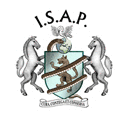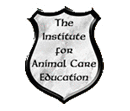
This course has been developed for those who aim to complete the Advanced Diploma in Applied Animal Behaviour but would benefit from some preparatory studies. Normally we would expect inexperienced people to follow a logical progression of courses in preparation but for those with some experience of working with dogs this course provides a shorter route. It comprises a selection of the most relevant modules from established courses.
Course Module
1. Ways of Explaining Canine Behaviour
- The affects of biology on behaviour
- Natures approach to behaviour
- Nurtures approach to behaviour
- How food affects behaviour
- Associative learning
- Do dogs think?
- Canine intelligence
- Various ways dogs communicate
- Canine instincts
- What is a behaviourist?
2. Unusual Canine Behaviour
- What is unusual canine behaviour
- What is normal canine behaviour
- Innate behaviour
- How owners confuse their dogs
- Unwanted barking behaviours
- Territorial aggression
- Fear aggression
- Progressive desensitisation
- Destructive behaviour
- Canine anxiety
- Feigning injuries
- Chasing behaviour
- Fouling indoors
- Coprophagia
3. What makes a social animal?
- Dogs as social animals
- Aggregations
- Evolution of canine social behaviour
- What constitutes behaviour?
- Kin selection
- Territories and territorial behaviour
- What is communication?
- Advantages of different sensory channels of communication
- Defining communication
- What is language?
- Verbal communication and how dogs learn words by association
- The canine senses
- Dog dialects
4. Defining Aggression
- Introduction to canine aggression
- Defining aggression in human terms
- Social communication
- Can aggression be thought of as a natural and/or beneficial behaviour?
- Selective breeding and its influence on behaviour
- Nature /Nurture Debate
- Group dynamics
- Social behaviour
- The dog's expressive body language
- The need for understanding body language
- Stress levels contributing to aggression
- Calming signals and displacement behaviour
- Are there any circumstances where aggression is appropriate?
5. The Canine Brain and Senses
- The canine central nervous system
- Basic brain structure and functions
- Structure of the dog's brain: Forebrain, midbrain and hindbrain
- Anthropomorphism
- Canine senses
- The use of proprioceptors
- Control of overheating
- Control of overcooling
- Structure of the ear and hearing
- Structure of the eye and vision
- Structure of the nose and the sense of smell
- Canine taste
- The sense of touch
- The reflex arc
6. Dog Training
- Why train dogs?
- The senses and training
- Schedules of reinforcement
- Primary and secondary reinforcers revisited
- Choice of primary reinforce
- Benefits of using positive reinforcement
- Putting the theory into practice
- Basic training of house training, the recall, the sit, sit/stand and progressing to heel with problems and solutions
- The advantages and disadvantages of using Clicker Training
- Summary of training principles



